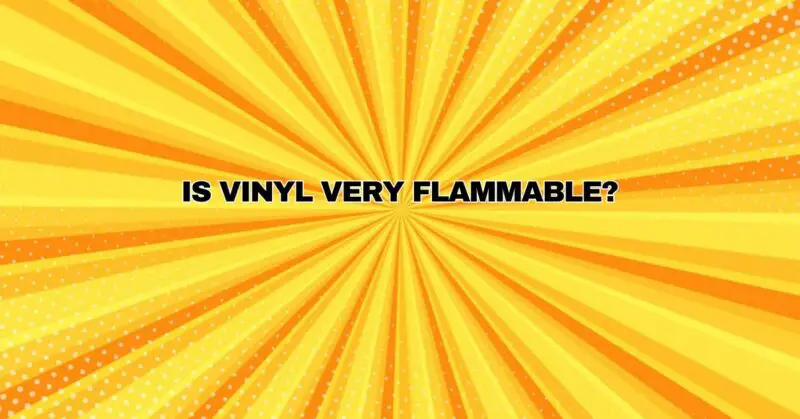Vinyl records, celebrated for their analog warmth and enduring appeal, are treasured possessions for music enthusiasts and audiophiles. While proper care and storage are essential to maintain the quality and longevity of your vinyl collection, concerns occasionally arise about the flammability of vinyl. In this comprehensive article, we will explore the properties of vinyl, its flammability, and the factors that influence its behavior when exposed to fire or heat.
Understanding Vinyl Composition
Vinyl records are primarily made from a type of plastic known as polyvinyl chloride (PVC). PVC is a synthetic polymer consisting of carbon, hydrogen, and chlorine atoms. It is widely used in various applications due to its durability, versatility, and cost-effectiveness.
The Flammability of Vinyl
Vinyl, like many plastics, is considered flammable under certain conditions. The flammability of vinyl is influenced by factors such as:
- Temperature: All materials, including vinyl, have a specific ignition temperature. Vinyl ignites when exposed to temperatures above its ignition point. However, this temperature is significantly higher than what is encountered in typical storage or usage environments.
- Exposure Duration: The duration of exposure to heat or flame also plays a crucial role. Vinyl may burn if subjected to prolonged exposure to high temperatures or an open flame.
- Chemical Additives: The flammability of vinyl can vary based on the specific formulation and additives used in its production. Some additives may enhance flame resistance.
- Thickness: The thickness of vinyl materials can affect their flammability. Thicker vinyl may be more resistant to ignition and burn more slowly than thinner vinyl.
Flame Retardants in Vinyl
To enhance fire resistance, vinyl products, including records, may contain flame retardants. Flame retardants are chemical additives that reduce the material’s flammability and inhibit the spread of flames. These additives can help vinyl withstand exposure to heat and open flames to a certain extent.
However, it is crucial to note that vinyl records are not intended to be fireproof or fire-resistant materials. They are designed for regular use, storage, and playback, not to withstand extreme heat or flames.
Practical Considerations
In everyday use and storage, vinyl records are not highly flammable materials. They are not prone to spontaneous combustion or ignition under normal conditions. However, vinyl can be damaged or deformed by exposure to excessive heat or an open flame.
Vinyl records should be stored away from direct sources of heat, such as radiators, stoves, or open flames, to prevent warping or damage to the records and their covers. Additionally, vinyl records should be kept in a cool, dry environment to maintain their optimal condition.
Conclusion: Handling Vinyl with Care
While vinyl records are not highly flammable in everyday scenarios, it is essential to handle them with care and take precautions to prevent exposure to extreme heat or open flames. Vinyl records are meant to be enjoyed for their analog warmth and musical charm, and with proper care and storage, they can provide years of listening pleasure without posing significant fire hazards.


